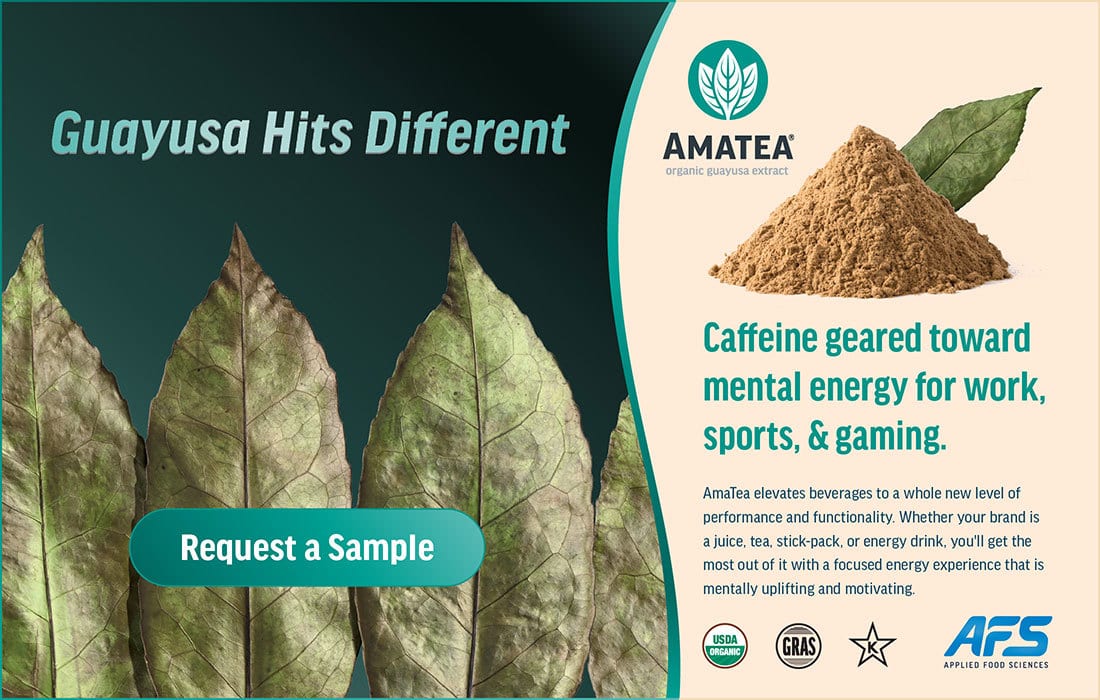Young
BRAINS
Keeping
BETTER FOR
you
Part 1: In the quest to sharpen the mind and retain cognitive health through the lifespan, old favorite and upcoming nutrition ingredients are making headlines.
By KERRY HUGHES, MS, Contributing Editor
Photo courtesy of: GettyImages / Jasper Chamber
Mounting research into causes of dementia and cognitive decline has produced the recognition that two of the potentially modifiable risk factors for these conditions are diet and exercise. In a recent study at King’s College, London 418 adults ages 65 and up were tested every two to three years over a 12-year period. Results revealed that cognitive decline and Alzheimer’s Disease were linked to neural stem cell death. Importantly, an underlying factor was low levels of vitamin D, carotenoids, and lipids.
The study built on the evidence of the protective effect of certain foods, such as coffee, cocoa, fish, and red wine—which are sources of those nutrients and others—and confirmed a 2019 study that identified a signature of metabolites that are predictive of cognitive decline. The signature included three coffee metabolites, a biomarker of citrus intake, a cocoa metabolite, two metabolites putatively derived from fish and wine, three medium-chain acylcarnitines, glycodeoxycholic acid, lysophosphatidylcholine, trimethyl-lysine, glucose, cortisol, creatinine, and arginine.

Probiotics are at the center of the digestive health/immunity trend, but research is supporting their possible mood health benefits. Photo courtesy of: Lifeway Foods Co.
Gut feeling
One of the most recent advances in determining how what goes on in the head works has been understanding what goes on in the “belly”–that is, understanding the so-called “gut-brain connection.” The science establishing the effect that digestive health and nutrition have on brain health, cognitive performance, and mood is firm. Yet another way in which we are what we eat.
As with many other health conditions, there is an evolving understanding about how digestion, the microbiome, and gut health could influence cognition and mental well-being.
In a recent study, the microbe Akkermansia muciniphila-CIP107961, was associated with countering the detrimental cognitive effects on working memory from a high-fat, high-cholesterol diet. It was also associated with a restoration in brain metabolism.

Saffron extracts recently have demonstrated a capacity for improving sleep and alleviating some symptoms of depression. Photo courtesy of: Pharmactive Biotech Products, SL
Brain Food
Newer discoveries in nutraceuticals are being correlated with recent research on cognition. As one example, a specialized extract of Sideritis scardica, commonly known as Greek Mountain tea, has been shown to benefit cognitive performance by helping to boost the ability to concentrate and lower anxiety levels during times of high stress. Other effects include increasing blood flow to the brain, improving the ability to process information, and helping to boost cognitive health, especially regarding mental flexibility and memory.
Green oat extract has exhibited cognitive performance benefits as well, especially in persons under chronic stress. In a randomized, double-blind, placebo-controlled study, a positive response on the physiological stress response demonstrated the acute and chronic effects of green oat extract on cognitive function and mood. Significant improvements in the working memory as well as in cognition during multitasking activities also were evident.
Saffron has been making news lately. A recently published dose-response, double-blind, placebo-controlled clinical study that showed that, when taken before bedtime, the spice has a natural elevating effect on melatonin (the so-called “sleep hormone”), and is associated with improvements in sleep quality ratings, mood ratings after awakening, and Insomnia Symptom Questionnaire (ISQ) total scores.
Ergothionene is an amino acid found in mushrooms and taken up in plants through soil and fungal associations. It is a unique antioxidant, and evidence suggests it may eventually be recognized as a vitamin. It acts as a cellular protector, counteracting inflammatory conditions and preserving cognition as one ages. Correlations have been found between low ergothioneine status and onset of cognitive decline, and new advances in understanding this singular ingredient have been made.
It was already known that ergothioneine can accumulate in the brain and has neuroprotective properties, but recent studies reveal it also has activities such as neurogenesis and neuronal differentiation, which may explain benefits to cognitive health. In animal models, it is also shown to have beneficial effects on sleep and depression.
Although curcumin is not quite a new ingredient, a new preclinical study shows that it could potentially help reduce damage from Alzheimer’s disease on organs other than the brain. In the brain, curcumin was shown to decrease amyloid deposition, pTau, cell loss, and inflammatory markers. There also were positive effects on health of the spleen, kidney, lungs, and liver.
Sesame oil cake extract, rich in phenolic lignans, was found in a recent, placebo-controlled clinical study to have benefits for persons with mild cognitive impairment. Subjects took 1.5g daily for 12 weeks. By the end of the study, the researchers found significant improvement in verbal memory scores in the supplementation group vs. the placebo, as well as decreases in blood concentrations of amyloid-beta, a known predictive factor for Alzheimer’s disease. End of Part 1
November 2021

